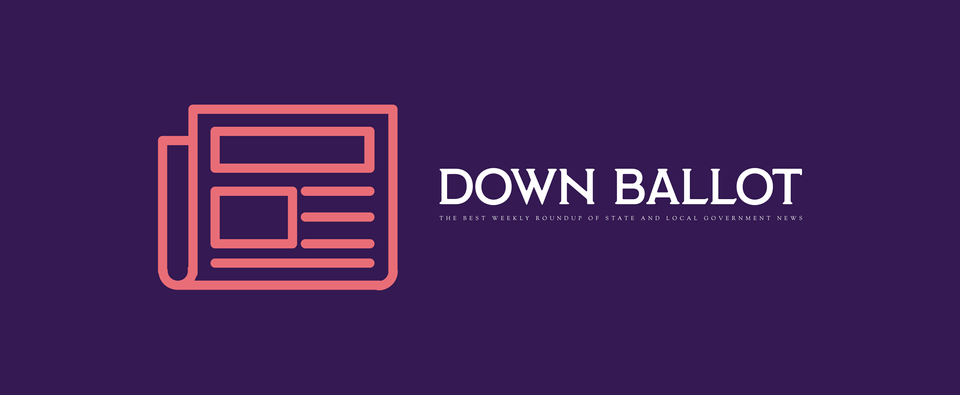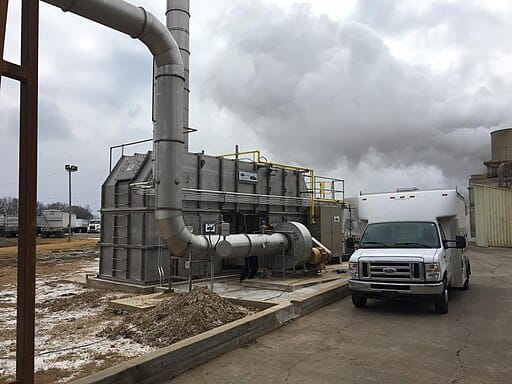A new database in New Mexico aims to de-escalate police encounters
We're covering a New Mexico database that informs police officers about health conditions or disabilities that may impact someone's ability to interact with law enforcement, insurance implications from the California wildfires and more.

Good morning. It's Wednesday, Jan. 22, 2025, and in this morning's edition, we're covering a New Mexico database that informs police officers about health conditions or disabilities that may impact someone's ability to interact with law enforcement, insurance implications from the California wildfires, incarcerated firefighters receive low pay but say the job is the best in prison, families unable to contact incarcerated firefighters that are deployed, winter weather for Helene survivors is worse than normal, record snowfall in South Louisiana and much more.
To continue reading the rest of each article, please click the link at the end of the excerpt.
Media outlets featured in this edition: Route 50, Governing, The Marshall Project, Los Angeles Public Press, Carolina Public Press, Louisiana Illuminator
If you're a North Carolina resident and voted in the N.C. Supreme Court race that is still not certified, please check the list of over 60,000 votes that Jefferson Griffin is trying to discard after narrowly losing to Allison Riggs.
Stephen Whitlow from Triangle Blog Blog has more information. Readers can also visit the Orange County group's website The Griffin List to search names and more.
For more about the GOP challenger, check out The Assembly’s article by Jeffrey Billman and Michael Hewlett.
Like what you're reading and appreciate the time we put in curating each edition, but don't want to be a paid subscriber? You can still make a one-time donation:
By Kaitlyn Levinson,
Reporter, Route Fifty
Concerns over how law enforcement personnel interact with neurodivergent people or individuals with cognitive or behavioral disorders has sparked momentum among communities to rethink how to prepare police for nontraditional interactions.
States like New Jersey are experimenting with pairing police officers with mental health professionals, and a growing number of U.S. cities are exploring the impact of alternative response teams that are sent to mental or behavioral distress calls in lieu of police.
New Mexico is taking a tech-based approach with a database launched over the summer that allows residents to share with the state if they have a condition that impacts their ability to communicate. The Nontraditional Communication Registry, signed into law in 2023, aims to inform and prepare police to more effectively interact with drivers or their passengers with certain conditions or disabilities during traffic stops.
OPINION: The dilemma of disaster insurance just got worse
OPINION| Jan. 21, 2025 • Donald F. Kettl
If you want to dig deep into what it’s going to take to rebuild the neighborhoods that the Los Angeles fires destroyed, you might want to book an airline ticket to the pink sands of Bermuda or the snowy mountains near Zurich. That’s because the most fundamental decisions are going to be made outside of L.A. — probably outside California altogether — in the shadowy world of the global reinsurance companies that backstop the property insurance markets in the state and in the rest of the country.
To rebuild, many residents will need mortgages, and lenders won’t give them a penny unless they can afford the cost of the mortgage and the cost of insuring the property. What’s more, buying insurance requires first that there is insurance to buy. That’s looming as perhaps the biggest barrier to building L.A. back.
There are several options, none of them ideal and most of them impractical.
First, let the market do it. That won’t work. For hundreds of years, there have been companies to insure potential risks and pocket a healthy profit. But when it comes to mega-risks like wildfires, we’re far past that. No company wants to write policies where a single big event like the L.A. fires would put them under, so there’s no hope for this option.
That leads to the second option: reinsurance. After a great fire in 1842 left 20,000 residents of Hamburg homeless, German insurance firms decided they needed to buy insurance for their insurance. Reinsurance, first in Germany and then in Switzerland, emerged to protect the market. That’s where Bermuda, Zurich and London come in. Insurance companies selling homeowners policies in California have relied on the global reinsurers in those places to cover big losses they might suffer, and they’ve folded the reinsurance costs into the premiums they’ve charged their customers.




